77 F. average high on June 9.
69 F. high on June 9, 2013.
Trace of rain fell at MSP International Airport yesterday.
June 9 in Minnesota Weather History. Source: Twin Cities National Weather Service:
2002: Extensive flash flood began across northwest Minnesota. 14.55 inches would fall over the next 48 hours near Lake of the Woods. Floodwaters covered the city of Roseau. The Roseau River looked like a large lake from a satellite view.
1913: Strange mirage in Duluth. Ships appeared to be floating in the air over Lake Superior.

A Few New Lakes?
A couple of months ago, based on a brewing El Nino and a fickle jet stream: still sluggish, chilly - snaking unusually far south after a pioneer winter - I went out on a limb and predicted a good chance of a cooler, wetter summer. Little has happened since April to change my mind.
Between no-wake zones imposed on overflowing lakes, cool and soggy weekends and a mosquito population so big you can hear them giggling in the background, many of us are feeling a little cheated right about now.
Our pact with nature has been violated. Endure a Minnesota winter - your reward will be a magical summer!
Right.
When summers skew cool and wet, when the kids dig out sweatshirts in June, stoic Minnesotans quickly lose their sense of humor.
At the risk of putting lipstick on a pig the drought is history - we'll pay less for A/C this summer, with fewer tornadoes & less controversy over the dew point. Why am I not feeling any better?
Expect a rare ration of mild sun today; 80F Wednesday before storms bubble up and a Thursday cool front kicks up a few whitecaps. A perfect Friday gives rise way to scattered T-storms over the weekend. Models hint at another stalled front and more downpours early next week.
Excuse me, I have to get back to building my ark.
1.38" of additional rain by Thursday morning (00z NAM model).
2.84" rain predicted over the next 16 days at KMSP (GFS model).
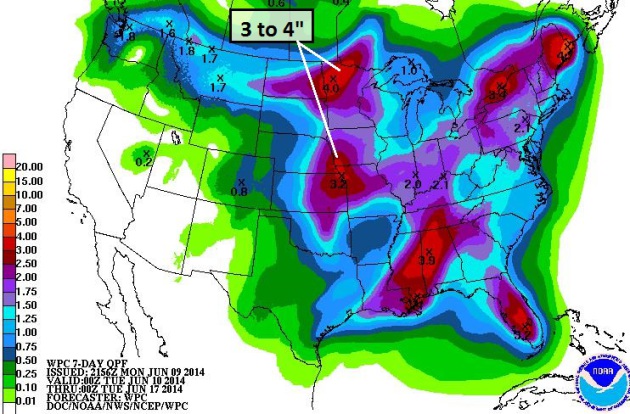
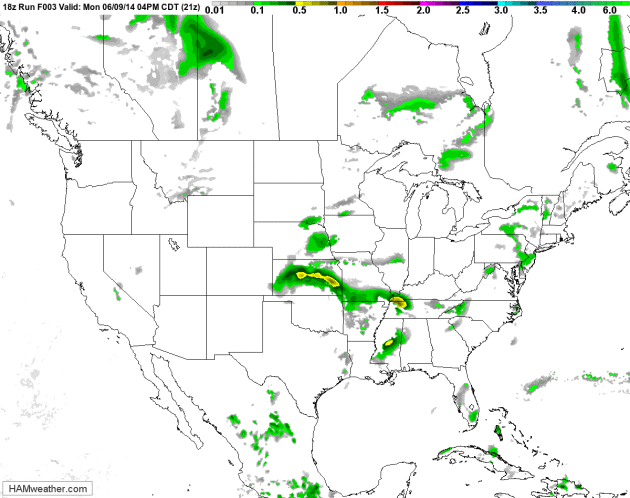

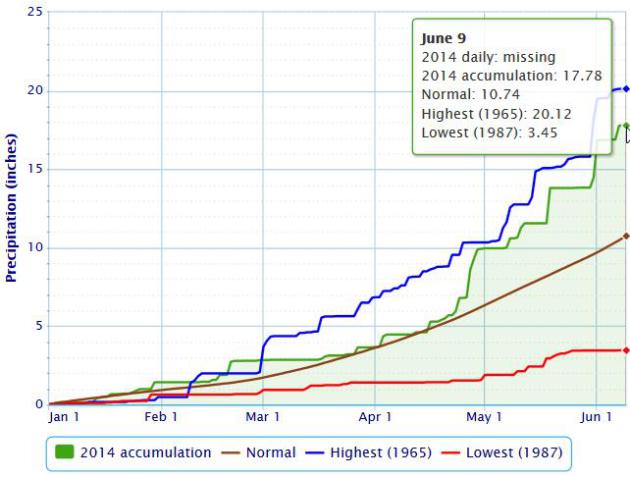
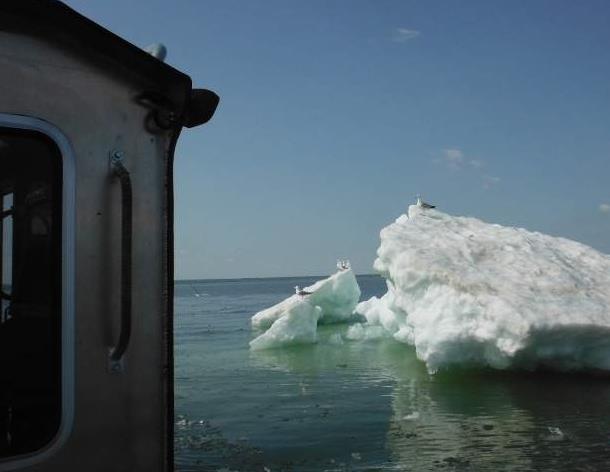
Photo credit above: "Wardens swing in to get a closer look at an iceberg on Lake Superior in June 2014." Wisconsin DNR photo.
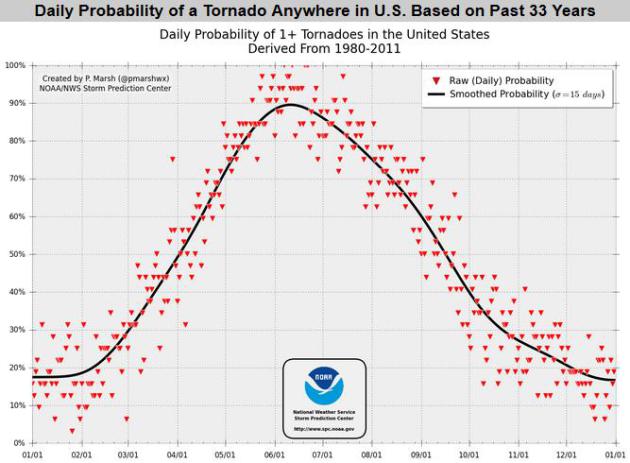
Graphic credit above: "SPC Science Support Branch Scientist, Dr. Patrick Marsh derived the probability of at least one tornado anywhere in the U.S. based on U.S. tornado reports since 1980."
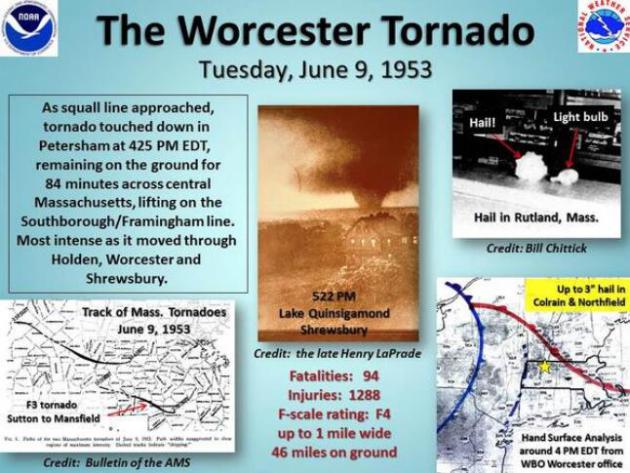

Photos: Six Months After Typhoon's Devastation, Recovery Eludes Tacloban.
The massive typhoon (same phenomenon as a hurricane) that smashed into
the Philippines last December, claiming over 6,000 lives, continues to
wreak havoc. The PBS Newshour has photos of hard-hit Tacloban and more details; here's a clip: "...An
estimated four million people were displaced by what was one of the
strongest typhoons on record to hit land. There are still tens of
thousands of residents living in temporary housing in tent cities. Last
month, a fire in one of the tent cities killed six children and their mother..."
Photo credit above: "A
view of temporary shelters built around a beached ship in Tacloban.
These shelters are perilously close to the sea, an issue that local
officials remain concerned about." Credit: Mark Litke.
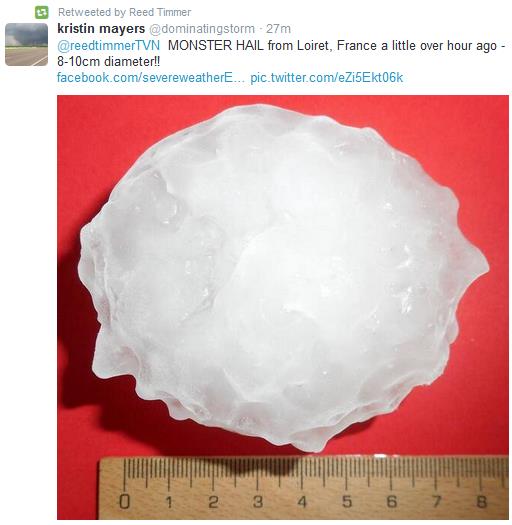


"No, A Computer Did Not Just Pass the Turning Test". Buzzfeed posts a rebuttal to the story above here.



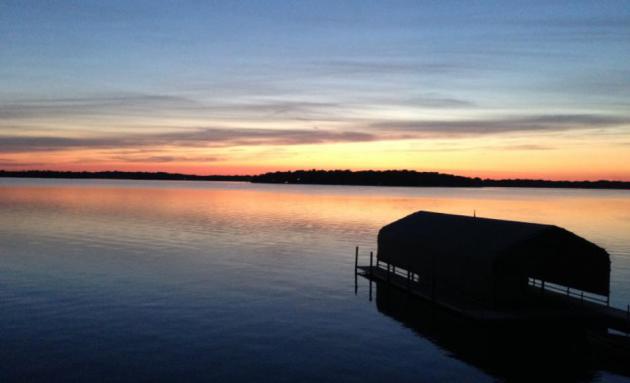
TODAY: Lukewarm sun, very nice. Winds: SE 8. High: 76
TUESDAY NIGHT: Mostly clear and comfortable. Low: 59
WEDNESDAY: Warm sun, late-day and nighttime T-storms likely. High: 81
THURSDAY: Wet start. Clearing skies, windy & less humid. Wake-up: 62. High: 71
FRIDAY: Blue sky much of the day. Dew point: 47. Wake-up: 55. High: 76
SATURDAY: Some sun, few T-storms likely. Wake-up: 60. High: near 80
SUNDAY: Lingering showers, few T-storms. Wake-up: 64. High: 77
MONDAY: Some sun, still warm. Wake-up: 58. High: near 80
Climate Stories....
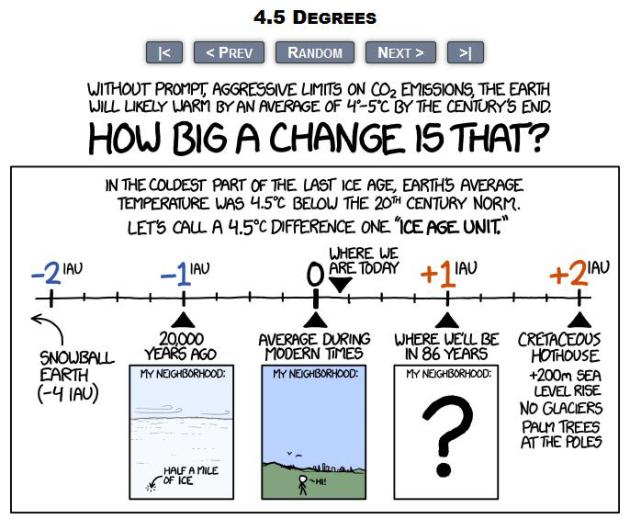
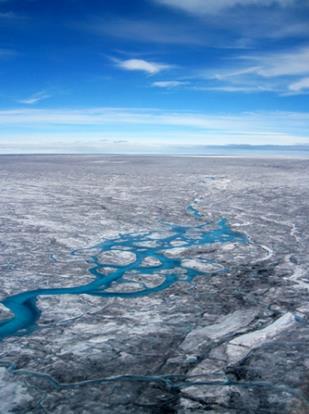
Photo credit above: "Meltwater channels run along the ice in Greenland. Soot, dust and microbes that live in the ice all contribute to its darkening." Credit: Henry Patton/Flickr.

Military Bases Brace For Slow-Motion War With Climate Change. The biggest concern: rising seas impacting Navy ports around the world. Here's an excerpt from NBC News: "...Naval
Station Norfolk, located in Virginia near the mouth of Chesapeake Bay,
has long been known as the world’s largest naval complex. But more
recently it has become the poster child for a relatively new risk facing the U.S. military:
how to protect bases around the country from rising seas, more severe
storms, wildfires, droughts and other impacts tied to a shifting
climate. That realization, Pentagon spokesman Mark Wright tells NBC
News, came after a still-classified, 2008 National Intelligence Council
report found that more than 30 military sites already face elevated risk -- and that’s just from rising sea levels..."
Photo credit above: "MC 1st Class Christopher B. Stoltz, U.S. Navy via Reuters file.
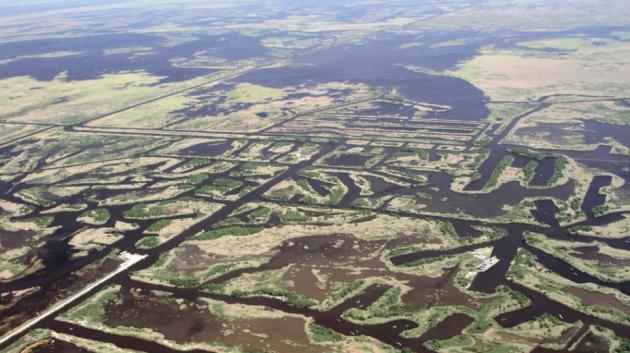
As A State Wrangles, Its Coast Is Swept Out To Sea.
A combination of factors: rising seas, land subsidence and erosion
triggered by cutting channels for oil and gas drilling, has accelerated
coastal erosion across Louisiana - now culminating in a lawsuit. Here's a
clip from National Journal: "...It's
not an abstract problem. The state has lost some 1,300 miles of marshes
and barrier islands since the 1930s, and it's only getting worse. The
U.S. Geological Survey estimates
that 75 square kilometers are being lost annually, and the wetlands
could be gone in 200 years. And as they disappear, Louisiana is losing
the buffer that shields its communities from storm surges and
hurricanes. And so to hear Barry tell it, his board is seeking
accountability by making an industry pick up the tab for the damage it
has caused. The suit's opponents—a powerful bloc that starts with the
oil industry and goes all the way up to Republican Gov. Bobby
Jindal—tell a different story, one of a rogue board allied with trial
lawyers that is pursuing court-sanctioned extortion..."
Photo credit above: "A lawsuit alleges that the canals dredged by oil and gas companies have damaged Louisiana's eroding coastline." (Jonathan Henderson/Courtesy of the Gulf Restoration Network).

Interests, Ideology and Climate.
Yes, for many climate change appears to be a proxy for something near
and dear to their hearts: truly free markets, no matter what the
consequences. Here's a clip of a Paul Krugman Op-Ed at The New York Times: "...Well,
think about global warming from the point of view of someone who grew
up taking Ayn Rand seriously, believing that the untrammeled pursuit of
self-interest is always good and that government is always the problem,
never the solution. Along come some scientists declaring that
unrestricted pursuit of self-interest will destroy the world, and that
government intervention is the only answer. It doesn’t matter how
market-friendly you make the proposed intervention; this is a direct
challenge to the libertarian worldview. And the natural reaction is
denial — angry denial. Read or watch any extended debate over climate
policy and you’ll be struck by the venom, the sheer rage, of the
denialists..."
No comments:
Post a Comment